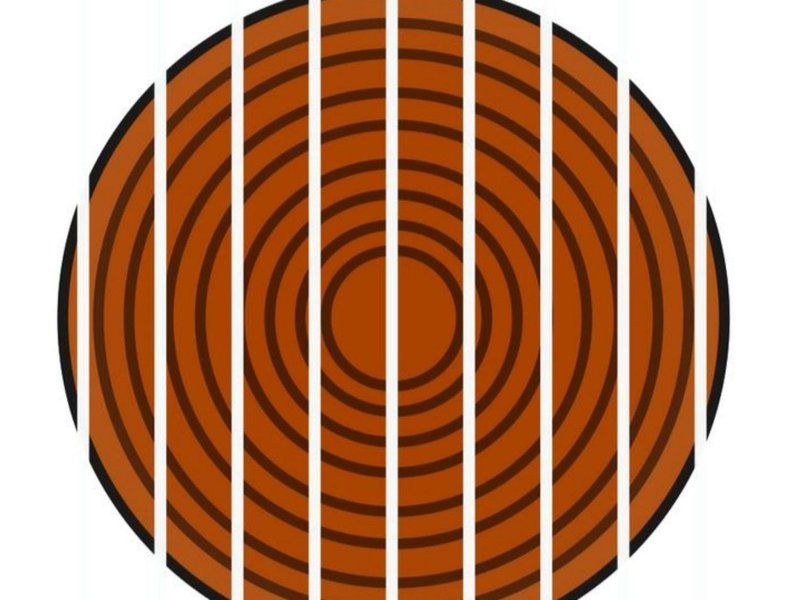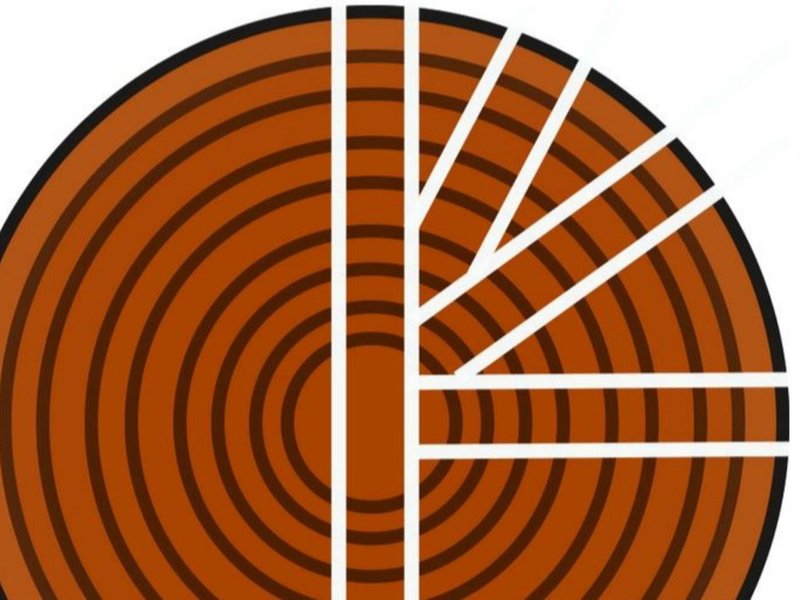With all the use your floor receives, you want a product and installation that’s durable. Hardwood flooring is a fantastic option for its incredible lifespan, as well as its stylish, modern look. Before you dive in and purchase hardwood for your home or business, you’ll want to make sure you are well informed on the product selection available. There is a vast range of hardwood characteristics and styles that could influence your purchase and understanding each is crucial.
This article will do a deep dive into hardwood flooring and equip you with everything you need to know for your next installation project. Let’s jump in.
What is Hardwood Flooring?
Hardwood flooring is a timeless and elegant choice that brings natural beauty and warmth to any space. Made from solid wood, hardwood floors are known for their durability, longevity, and ability to enhance the aesthetic appeal of a room. As a flooring option, hardwood offers a classic and sophisticated look that complements various interior design styles.
One of the main advantages of hardwood flooring is its versatility. With a wide range of wood species, finishes, and colors available, you can easily find a hardwood floor that matches your personal style and complements your home's decor. From the rich and dark tones of walnut to the light and airy hues of white oak, there is a hardwood option to suit every taste.
In addition to its aesthetic appeal, hardwood flooring is highly durable and can withstand heavy foot traffic and daily wear and tear. With proper care and maintenance, hardwood floors can last for decades, making them a long-term investment in your home's value.
Hardwood flooring is also known for its ease of cleaning and maintenance. Regular sweeping or vacuuming, along with occasional mopping with a hardwood floor cleaner, is typically all that's needed to keep your floors looking beautiful.
Another benefit of hardwood flooring is its ability to improve indoor air quality. Unlike carpeting, hardwood floors do not trap dust, allergens, or pet dander, making them a healthier choice for those with allergies or respiratory conditions.
At Riemer Floors, we offer a wide selection of hardwood flooring options to suit every style and budget. Our knowledgeable team is here to help you choose the perfect hardwood floor for your space and guide you through the installation process.
Characteristics of Hardwood
When it comes to choosing hardwood flooring, there are several key characteristics to consider: length, hardness, thickness, and width. These factors play a significant role in determining the overall look, durability, and suitability of the flooring for your space.
Length
When it comes to hardwood flooring, the length of the planks plays a significant role in the overall aesthetic appeal of your space. Longer hardwood planks can create a sense of openness and continuity, while shorter planks can add visual interest and dimension to a room.
Longer hardwood planks, typically ranging from 48 inches to 86 inches, can create a more spacious and cohesive look in larger rooms. They can visually expand the space and create a sense of luxury and grandeur. Additionally, longer planks can minimize the number of seams, resulting in a more seamless and uninterrupted appearance.
On the other hand, shorter hardwood planks, usually ranging from 12 inches to 36 inches, can add character and visual interest to smaller rooms or areas with unique layouts. They can create a more dynamic and textured look, enhancing the overall design aesthetic of your space.
Hardness
When choosing hardwood flooring, it's important to consider the hardness of the wood species. Hardness refers to a wood's ability to resist dents and scratches, making it an essential factor in determining the durability and longevity of your floors.
The hardness of hardwood is measured using the Janka hardness scale, which assigns a rating to each wood species based on its resistance to indentation. Woods with higher ratings, such as oak or maple, are considered harder and more resistant to everyday wear and tear.
Our knowledgeable team at Riemer Floors is here to help you navigate the different hardwood options and guide you towards the best choice for your specific needs. We are committed to providing you with high-quality hardwood flooring that balances both durability and style, ensuring a long-lasting investment in your home or business.
Thickness
Choosing the right thickness for your hardwood flooring is an important consideration when it comes to durability, stability, and installation.
Typically, hardwood flooring comes in thicknesses ranging from 5/16 inch to 3/4 inch. Thicker hardwood floors are generally more durable and can withstand heavy foot traffic, making them suitable for both residential and commercial settings.
Thicker hardwood planks also provide more dimensional stability, reducing the risk of warping or cupping due to changes in temperature and humidity. This is particularly important in environments with high moisture levels or fluctuating climate conditions.
Width
When it comes to hardwood flooring, the width of the planks can have a significant impact on the overall look and feel of your space. From sleek and modern to rustic and charming, the width of hardwood planks can help you achieve the desired aesthetic for your home or business.
Narrow hardwood planks, typically ranging from 2 to 4 inches in width, can create a more traditional and classic look. They offer a timeless appeal and work well in smaller spaces or rooms with a more formal design.
Wide hardwood planks, usually ranging from 5 to 10 inches, can create a more contemporary and spacious feel. They provide a sense of openness and lend themselves well to larger rooms or spaces with a more modern aesthetic.
Mixed-width hardwood planks offer a unique and eclectic look. By combining different widths within the same flooring installation, you can create a visually striking and dynamic design. Mixed-width planks are an excellent choice for those seeking a truly custom and personalized flooring solution.
Types of Hardwood Cuts
The wood grain appearance of your hardwood is dependent on which type of cut is performed during the manufacturing process. Solid hardwoods are cut by two primary methods, and each has its own distinctive patterns.

Flatsawn Boards
Flatsawn boards are sliced lengthwise, allowing the tree’s growth rings to appear parallel with the plank. This creates a wavy, flamelike pattern that’s classically found in flooring.

Quartersawn Boards
Quartersawn boards are cut out of the tree like a pie. This results in growth ring patterns that run perpendicular to the face of the plank, creating a much more even appearance. This type of cut is also more expensive.
How Hardwood Grading Works
The quality and price of your unfinished hardwood flooring are determined based on the grade of wood. The fewer the defects, the higher the grade. It’s worth mentioning, however, that different species of woods have different standards of defects, as some species naturally have many knots and a variety of colors present. Grading is broken down into three categories:
- Select: Minimal, or zero defects
- Natural: Occasional defects found throughout
- Rustic: Many obvious defects
FAQs About the Different Types of Hardwood Floors
What is the difference between solid hardwood and engineered hardwood flooring?
Solid hardwood is made from a single piece of wood and offers unmatched authenticity and durability. Engineered hardwood is constructed using multiple layers, with a real hardwood top layer and a stable core. Engineered hardwood is more resistant to moisture and can be installed in areas where solid hardwood may not be suitable.
Can solid hardwood be installed below grade or in basements?
Solid hardwood is generally not recommended for below-grade installations or areas with high humidity levels, such as basements. The moisture in these areas can cause the wood to expand, contract, or warp. Engineered hardwood or luxury vinyl is a better choice for such environments.
How many times can engineered hardwood be refinished?
The number of times engineered hardwood can be refinished depends on the thickness of the top hardwood layer, also known as the wear layer. Thicker wear layers allow for more refinishing options. It is important to choose a high-quality engineered hardwood with a thick wear layer if you anticipate the need for future refinishing.
Which wood species are best for high-traffic areas?
Wood species like Oak and Hickory are known for their durability and are excellent choices for high-traffic areas. They can withstand heavy foot traffic and are less prone to scratches and dents.
Are hardwood floors suitable for homes with pets?
Yes, hardwood floors can be a great option for homes with pets. However, it is recommended to choose harder wood species like Oak or Hickory, as they are more resistant to scratches and damage. Regular pet nail trimming and using protective pads on furniture can also help maintain the condition of your hardwood floors.
How do I maintain and clean hardwood floors?
Regular maintenance and cleaning of hardwood floors involve sweeping or vacuuming with a soft-bristle attachment to remove dirt and debris. It is important to avoid excessive moisture, so use a damp mop or hardwood floor cleaner specifically designed for wood flooring.
Can hardwood floors be installed over radiant heating systems?
Yes, hardwood floors can be installed over radiant heating systems. However, it is crucial to choose the appropriate type of wood and follow the manufacturer's guidelines for installation. Engineered hardwood is often recommended for radiant heating systems as it is more stable and less prone to warping.
How long does it take to acclimate hardwood flooring before installation?
Hardwood flooring needs to acclimate to the environment in which it will be installed to prevent expansion or contraction after installation. The acclimation period can vary depending on the manufacturer's recommendations, but it typically ranges from a few days to a couple of weeks.
Can I install hardwood flooring myself, or should I hire a professional?
While it is possible to install hardwood flooring yourself, it is recommended to hire a professional for the best results. Proper installation requires knowledge and experience in subfloor preparation, moisture testing, and ensuring a precise fit and finish.
Outfit Your Home with Beautiful Hardwood Flooring
No home product can add the level of luxury and function that hardwood flooring does. If you’ve been ready to make a change to your flooring, hardwood is a long-lasting solution that you’ll be able to enjoy for years ahead.
We have a beautiful selection of hardwood flooring styles sure to match any design vision and budget. Browse our complete collection today.

